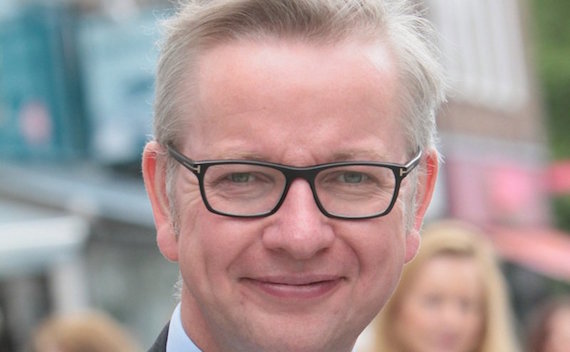Defra Secretary Michael Gove has insisted the Government remains committed to the very highest standards of animal welfare, as the row over the recent Commons vote on animal sentience refuses to die down.
Following the Prime Minister’s intervention on Wednesday, Mr Gove has issued a written statement in which he outlines the Government’s intentions to make the UK a world leader in the care and protection of animals.
He wrote: “It has been suggested that the vote last week on New Clause 30 of the EU Withdrawal Bill somehow signalled a weakening in the protection of animals – that is wrong. Voting against the amendment was not a vote against the idea that animals are sentient and feel pain – that is a misconception.
“Ministers explained on the floor of the house that this Government’s policies on animal welfare are driven by our recognition that animals are indeed sentient beings and we are acting energetically to reduce the risk of harm to animals – whether on farms or in the wild. The vote against New Clause 30 was the rejection of a faulty amendment, which would not have achieved its stated aims of providing appropriate protection for animals.”
The vote provoked an angry and prolonged backlash among some politicians, animal welfare campaigners and vets. The Green Party said it was ‘shameful’ the Government had denied animals this ‘simple protection’, while the British Veterinary Association senior vice president Gudrun Ravetz described the vote as ‘extremely concerning’. She said this ‘seminal clause was a founding principle of animal welfare science, and for the way that we should treat all animals’.
But, echoing the position taken by the Government and Tory MPs since the vote, Mr Gove said: “The Prime Minister has made clear that we will strengthen our animal welfare rules. This Government will ensure that any necessary changes required to UK law are made in a rigorous and comprehensive way to ensure animal sentience is recognised after we leave the EU. The Withdrawal Bill is not the right place to address this, however we are considering the right legislative vehicle.
“We are already proposing primary legislation to increase maximum sentences for animal cruelty from six months to five years, and the creation of a new statutory, independent body to uphold environmental standards.
He said the current EU instrument – Article 13 – has not delivered the progress the Government wanted to see. “It does not have direct effect in law – in practice its effect is very unclear and it has failed to prevent practices across the EU which are cruel and painful to animals,” he said.
“In contrast, here in the UK, we are improving animal welfare standards without EU input and beyond the scope of Article 13. We are making CCTV mandatory in all slaughterhouses – a requirement which goes above and beyond any EU rule. We will consult on draft legislation to jail animal abusers for up to five years – more than almost every other European nation.
“Once we have left the EU there is even more we could do. EU rules prevent us from restricting or banning the live export of animals for slaughter. EU rules also restrict us from cracking down on puppy smuggling or banning the import of puppies under 6 months. Article 13 has not stopped any of these practices – but leaving the EU gives us the chance to do much better. We hope to say more in these areas next year.
“This government will continue to promote and enhance animal welfare, both now and after we have left the EU.”




